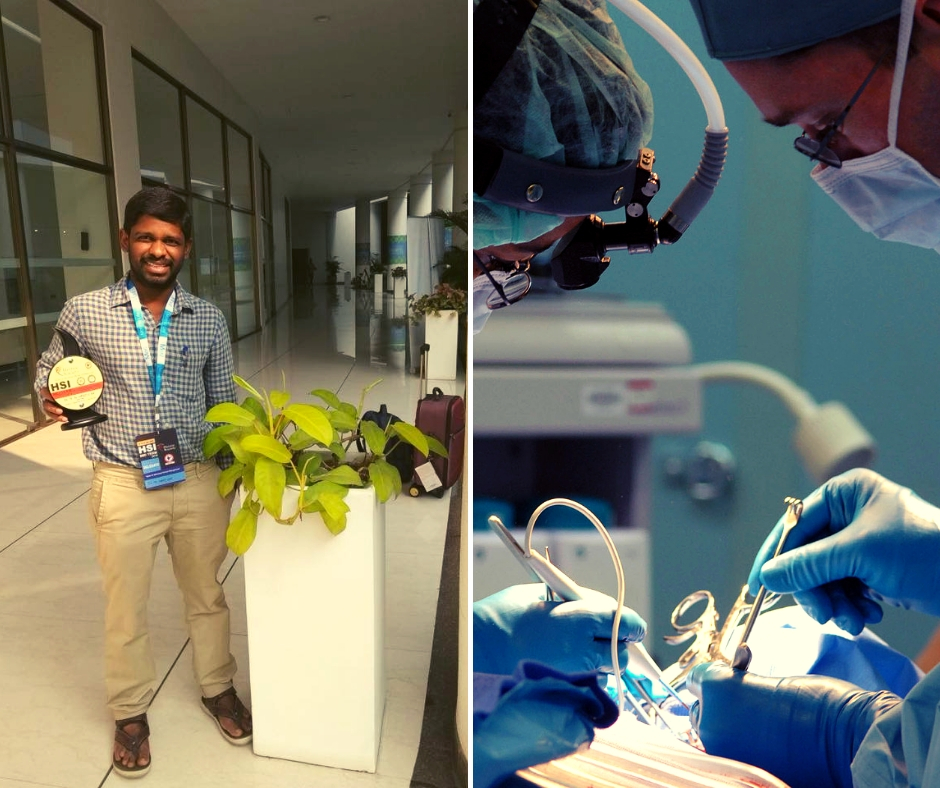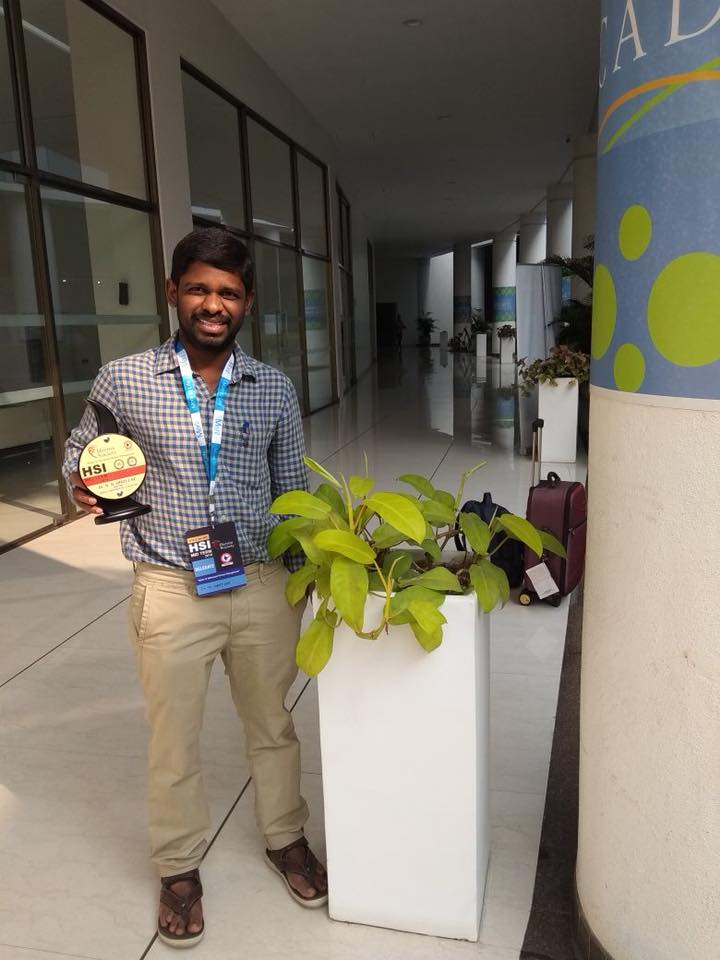How a Doctors’ Collective in TN Is Challenging Politics & Discrimination in the Medical Profession
“I come from a small village in Tirunelveli district, so I know what it’s like for students from these parts," says Dr Mari Raj - who is fighting for equality and justice.

When Dr Mari Raj was studying for his post-graduate degree in Ahmedabad, he faced severe caste discrimination.
He was compelled to serve tea to certain students and teachers, made to stand outside hospital wards during demonstrations and denied fair opportunities to perform surgical procedures—a necessity when one is studying to become a surgeon.
Recalling those times opens up old wounds.
“I hate to say it, but at one time I even contemplated suicide because of all the harassment. I filed an atrocity case against seven doctors and nine students in college, but nothing happened. All of them were given bail. When I came back, I was denied duty for 18 days, and the university even rejected my hall ticket. It was only thanks to the Gujarat High Court that the hall ticket was delivered,” says Dr Mari, in a conversation with The Better India.
Today, Dr Mari is the General Secretary of the of the newly-formed and Tamil Nadu-based Democratic Doctors’ Association (DDA), which will serve the interest of medical students and doctors from the state.
What started as an initiative by few doctors to bring significant changes to the existing medical system has turned into a collective with over 100 members which will possibly cross 500 in the next six months.
In his conversation with TBI, Dr Mari spoke at length about the issues that the collective hopes to address.
One of the major concerns is the discrimination and harassment that medical students from the state, particularly from low-caste and low-income families, face in institutions not just across Tamil Nadu, but also around the country.
“There have been many cases where students have died under mysterious circumstances, but the authorities did not conduct a thorough investigation. While these cases are often termed as suicides, the truth does not come out. Did they commit suicide because of harassment, discrimination or was it a case of foul play? The collective will look to push for answers,” says Dr Mari.
The NEET exam is another student-related issue that the collective wants to approach.
Dr Mari believes that the exam leaves poorer students from Tamil Nadu at a terrible disadvantage since they do not have access to coaching centres or opportunities to study from other preparatory materials.
“I come from a small village in the Tirunelveli district, so I know what it’s like for students from these parts. Yes, medical seats are filling up all over, but primarily for students from metros. Previously, you would find students from all over, but now mostly students from metro cities with high-income backgrounds make it,” he says.
“The NEET system is indirectly pushing students from small towns and villages to study an additional year after Class 12 to prepare for the exam. This increases pressure on students and, in turn, on their families. The government does not offer NEET coaching centres, and private players enter the market charging as much as Rs 1 lakh per year. How can low-income families afford it?” he asks.
In addition to the above matters, the collective also plans to address policies introduced by the government that it believes are doctor-unfriendly.
“The government has turned the doctor-patient relationship into one between customer and service giver and isn’t doing enough to protect its doctors. As a consequence, litigation costs are high. Without any real protective measures, doctors are now afraid to treat a patient if it involves a complicated surgery where the chance of risk is high. If something goes wrong, families take them to court, and in some cases, even assault them,” says Dr Mari.

In response, the association will look to establish a team in every district of the state, which will investigate any such instance of violence or other medical-related concerns under their remit.
The legislation which replaced the Medical Council of India with the National Medical Commission and the Clinical Establishment Act (CEA) is also a worry.
As per Dr Mari, most doctors do not quite understand the ramifications that these pieces of legislation can have on the profession, and the politics that goes behind them. He wants to ensure that this changes in the future.
In a conversation with The News Minute, Dr Raj Vardhanan, a surgical oncologist and advisor to the DDA, had said, “While the government claims that the CEA will allow the treatment cost to be better regulated and monitored so that all people have better access to healthcare, some private hospitals allege that the government is attempting to infiltrate the healthcare system and that such an act would not benefit the medical personnel.”
Finally, the collective will also address caste discrimination in the state medical profession, particularly in the context of promotion for Dalit doctors that are often delayed even in instances when they become consultants.
“Another key agenda in this regard will be to conduct medical camps in remote villages, where we will not only treat the poor but challenge superstitions, inculcate rational thinking and promote the message of revolutionary thinkers like Gautama Buddha and Dr BR Ambedkar,” says Dr Mari.
Also Read: From Milking Cows To Cutting-Edge Cancer Research: Daily Wager’s Son Defines Sheer Grit!
Membership to the DDA isn’t restricted by caste, gender or whether the doctor works in a government or private hospital.
“This is an association for doctors who believe in progressive and rational thinking, and depending on the issue we are ready to work with other doctors’ associations as well,” he says.
While speaking to Dr Mari, one cannot help but notice the determination and sense of conviction in the tone of his voice.
How that translates into action is something that remains to be seen.
(Edited by Gayatri Mishra)
Like this story? Or have something to share? Write to us: [email protected], or connect with us on Facebook and Twitter.
If you found our stories insightful, informative, or even just enjoyable, we invite you to consider making a voluntary payment to support the work we do at The Better India. Your contribution helps us continue producing quality content that educates, inspires, and drives positive change.
Choose one of the payment options below for your contribution-
By paying for the stories you value, you directly contribute to sustaining our efforts focused on making a difference in the world. Together, let’s ensure that impactful stories continue to be told and shared, enriching lives and communities alike.
Thank you for your support. Here are some frequently asked questions you might find helpful to know why you are contributing?


This story made me
- 97
- 121
- 89
- 167










